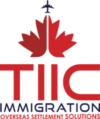
Immigration remains crucial to addressing Canada’s longstanding demographic challenges and labour market shortages, and it will be a vital part of Canada’s post-pandemic economic recovery. Starting June 21, 2021, any foreign national who holds a valid Confirmation of Permanent Residence (COPR) may travel to Canada.
Under the previous rules, foreign nationals who held a valid COPR issued on or before March 18, 2020, were exempt from Canada’s travel restrictions. Those who held a valid COPR issued after March 18, 2020, could only come to Canada if they met another exemption or were coming from the US to settle permanently in Canada.
Helping applicants with expired and expiring COPRs
A COPR’s validity, which can last for up to one year, is tied to the applicant’s passport and their immigration medical examination. However, many applicants were not able to travel to Canada before their COPRs expired due to the travel restrictions or other COVID-19 related considerations. Immigration, Refugees and Citizenship Canada (IRCC) has been working with applicants who were already exempt from the travel restrictions to reissue them a COPR. For applicants with expired COPRs issued after March 18, 2020, more information on when and how to obtain a new COPR will soon be available on IRCC’s website.
Individuals whose COPR has expired should not book flights or attempt to travel to Canada until they receive a new COPR from IRCC.
Safe and gradual arrival of new permanent residents in Canada
The Government of Canada’s top priority is the health and safety of Canadians. All people travelling to Canada, including those approved for permanent residence, must comply with the COVID-19 health measures and requirements upon arriving in Canada. All travellers must follow the flying to Canada requirements checklist or driving to Canada requirements checklist.
The changes to the travel restrictions complement the temporary pathway to permanent residence for those already hard at work in Canada, to ensure we continue to have the labour force needed for our economic recovery. While permanent residence applicants in Canada will help bolster our more immediate labour market needs, successful applicants abroad need time to make arrangements and uproot their life before coming to settle in Canada, particularly in our current environment where many may not feel safe to travel right now. By allowing more time for reasonable numbers of new immigrants to settle in Canada and begin their integration, we can better prepare for Canada’s economic future.
Permanent residents are also likely to have supports in place once they arrive here—family members, supportive employers and resettlement agencies for refugees—and the means to ensure they comply with public health measures.









